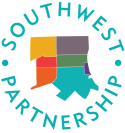Southwest Partnership Education and Workforce Development Committee
Thursday June 2nd 2016
7pm
1138 Hollins St 2nd Floor
Present
Lou Packett
Lisa Rawlings
Elizabeth Weber
Jon Law
Nancy Littlepage
Vernell Lewis
Attendance Program Update:
When the Committee met with area principals over the summer they indicated three areas that they would like support on: attendance, mental health, and literacy. The Southwest Partnership worked with Public Allies, an Americorps program based at the UMB School of Social Work which provides leadership development for young people from underserved communities, to develop a program which would place one Public Ally to serve as an attendance monitor in each participating area school. The Allies would be selected by the schools from the school community or families of students. To implement the program the Southwest Partnership would need to raise approximately $13500 for each school to cover the cost of the Ally. We have been unable to raise the full amount of the program in the time needed for the beginning of the Public Allies program.
Lisa and Elizabeth have been talking to representatives from the Casino Impact Area about funding the program in the three schools in Pigtown as a pilot. They like the program but they need to work on a process for providing funding to programs. We are arranging a meeting with Sen. Ferguson to determine what the process would be and see if we can get funding. There is a deadline of end of June to know whether or not we can fund the program.
We are also talking to the Casino Impact Area representative about funding for the SWP/UMB OCE YouthWorks program which will host neighborhood 15 youth to work on community initiated projects. The funding would be for stipends for community members to work with the youth, and because it is a YouthWorks project there may be money available for this fiscal year.
LeaderComm:
Last month Lou organized a meeting with Bill Milliken, the founder of Communities in Schools which is a non-profit founded to strengthen communities through rallying around schools. When the Vision Plan was first developed having all schools being community schools was part of the plan (based on the SWCOS Community School model). There hasn’t been much traction on increasing the number of Community Schools due to the current rate of funding being available for new community schools.
LeaderComm was founded by Milliken after he retired from Communities in Schools and takes the principles of network building developed through the work in schools and expands them to other community building projects. They have a training program that could help the SWP develop a strong constituency advocating for area schools. LeaderComm trains ‘Routers’ who are the key ingredient to making Communities in Schools and similar collaborations work.
The training would be more of a resource right now for the community rather than individual schools.
Lou: Communities in Schools has a great track record–97% of identified at risk students graduate, for every $1 invested $14 is returned.
Nancy asked about the details of what the program does. Lisa explained that they break down silos and build relationships and train community members to do the same. When working in schools they don’t necessarily bring in more money to hire staff, but they do invite in partners to address school challenges as understood from within the school, providing more time and space and energy for instruction for educators.
Jon: it sounds like community organizing training and he is in favor of that. What would we be getting from LeaderComm?
They would have assigned a staff person to us, the intention is to move beyond the training and then use the training to bring in the resources needed to support the schools. They would also help us look for other resources for the schools–such as the faith community. Carter Memorial is working with James McHenry.
The Committee is ok with pursuing the LeaderComm training.
The Committee discussed scheduling the orientation and how to do outreach. Invitations will be sent widely for the initial orientation training including to all SWP Committees, neighborhoods associations, workforce development partners, parents, students, school staff, local businesses, and churches. The Committee discussed whether it would be appropriate to invite corporate or funding partners to the first meeting.
The Committee discussed the importance of scheduling the training so that it would be useful to attendees, and of having specific follow up tasks that attendees could participate in. These could include attending a committee meeting, participating in volunteer opportunities at area schools, doing the practitioner training, or working on ongoing projects with schools.
We will need language that will explain what the training is about–Lou suggested Collective Impact Training. Possible dates for training are July 16th or the 30th, or any Saturday in August.
Lou will reach out to LeaderComm to see what dates work for them and to get a more complete description of the training as well as information about how they’ve marketed it in the past.
Possible locations are area schools and churches. Elizabeth will reach out to the schools and Lou to the churches.
After School Program Update: Franklin Square sent a list of programs they are in need of a coordinator and funding for stipends for afterschool programs. We want to be able to go to them with what the schools need in terms of afterschool programs when funding from the Community Benefits Agreement becomes available. $30,000 has been set aside for after school funding.

